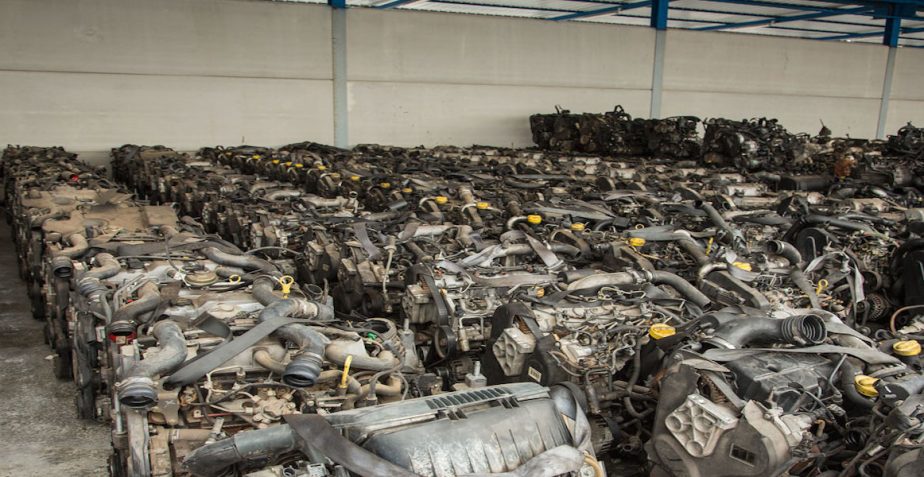
When your vehicle’s engine starts showing signs of wear and tear, the cost of a new engine can be daunting. Opting for a used engine is a practical alternative, but it comes with its own set of challenges and considerations. Choosing the right used engine involves more than just finding one that fits your vehicle; it requires careful evaluation and understanding. This guide will walk you through the essential steps and tips for selecting a used engine, ensuring that you make an informed and confident decision.
Why Consider a Used Engine?
Before diving into the specifics of choosing a used engine, it’s important to understand why this option might be right for you. Here are some key reasons:
1. Cost-Effectiveness: Used engines are generally much cheaper than new ones. This can be a significant saving, especially if you are trying to extend the life of an older vehicle.
2. Availability: For older or less common vehicle models, new engines may not be readily available. A used engine can provide a viable solution for these situations.
3. Environmental Impact: Reusing engines helps reduce waste and the environmental impact associated with manufacturing new parts. It’s a more sustainable choice that contributes to a circular economy.
Steps to Choose the Right Used Engine
1. Determine Your Vehicle’s Needs
Before you start searching for a used engine, it’s crucial to know exactly what you need. Gather the following information about your vehicle:
– Make and Model: The engine you choose must be compatible with your vehicle’s make and model. This information will help you narrow down your options.
– Engine Specifications: Note down the engine specifications, including displacement, fuel type, and transmission type. This will ensure that the used engine you select matches your vehicle’s requirements.
– Vehicle Identification Number (VIN): The VIN can provide detailed information about your vehicle, including the original engine type. This can be useful when searching for a compatible used engine.
2. Find a Reputable Source
– Research Suppliers: Look for reputable auto parts suppliers or junkyards that specialize in used engines. Check their reviews and ratings to gauge their reliability.
– Ask for Recommendations: Consult with trusted mechanics or vehicle enthusiasts who may have experience with used engines. They can provide valuable recommendations and insights.
– Visit the Supplier: If possible, visit the supplier’s facility to inspect the engines in person. This allows you to assess the condition of the engines and the professionalism of the supplier.
3. Inspect the Engine Thoroughly
Once you’ve identified potential engines, it’s time to inspect them. Here’s what to look for:
– Physical Condition: Check for signs of damage, such as cracks, leaks, or rust. A well-maintained engine should be clean and free of obvious defects.
– Mileage: Inquire about the engine’s mileage. While lower mileage is generally preferable, it’s not the only factor to consider. A well-maintained engine with higher mileage might be a better choice than a low-mileage engine that has been poorly cared for.
– Service History: Ask for the engine’s service history, if available. A well-documented service record can provide insight into how the engine was maintained and any potential issues.
– Compression Test: Perform a compression test to check the engine’s internal condition. This test measures the pressure in each cylinder and can indicate potential problems such as worn piston rings or valves.
– Oil Condition: Inspect the oil for cleanliness and consistency. Contaminated or dirty oil may indicate that the engine has been poorly maintained.
4. Verify Compatibility
Ensure that the used engine is compatible with your vehicle:
– Engine Codes: Verify that the engine codes match your vehicle’s specifications. Engine codes are unique identifiers that indicate the engine’s make, model, and type.
– Electrical and Mechanical Compatibility: Check that the engine’s electrical and mechanical components are compatible with your vehicle. This includes sensors, wiring, and mounts.
– Transmission Compatibility: Ensure that the engine is compatible with your vehicle’s transmission. Some engines may require specific transmissions or adaptors.
5. Consider Warranties and Returns
When purchasing a used engine, it’s important to consider warranties and return policies:
– Warranties: Some suppliers offer warranties on used engines. A warranty provides peace of mind and protection in case the engine fails shortly after purchase. Review the terms and conditions of the warranty carefully.
– Return Policies: Understand the supplier’s return policy in case the engine is not compatible or has issues. A flexible return policy can provide additional protection.
6. Seek Professional Assistance
If you’re not confident in your ability to evaluate a used engine on your own, seek professional assistance:
– Mechanics: A trusted mechanic can help assess the condition of the engine and determine if it’s a good fit for your vehicle.
– Engine Specialists: Some specialists focus specifically on used engines and can provide expert advice and inspection services.
Final Thoughts
Choosing a used engine is a practical solution that can save you money and extend the life of your vehicle. By following these steps—understanding your vehicle’s needs, finding a reputable source, inspecting the engine thoroughly, verifying compatibility, and considering warranties—you can make an informed decision that ensures a successful engine replacement.
Remember, purchasing a used engine is not just about finding the cheapest option but about balancing cost, quality, and reliability. With careful research and consideration, you can find a used engine that meets your needs and keeps your vehicle running smoothly for years to come.
Choosing the right used engine can be a rewarding experience, offering both financial benefits and environmental advantages. By approaching the process with diligence and attention to detail, you can make a choice that supports the longevity of your vehicle and aligns with your values.
- August 25, 2024
- Uncategorized




